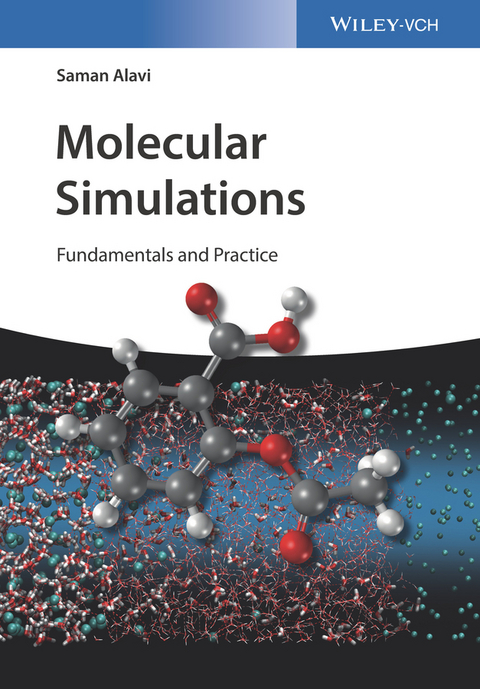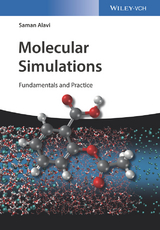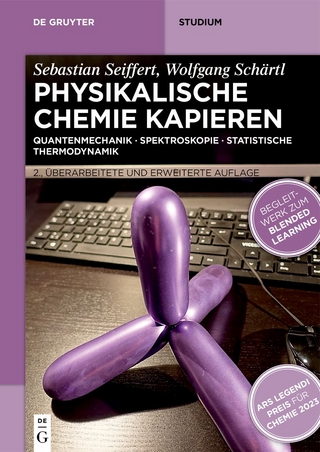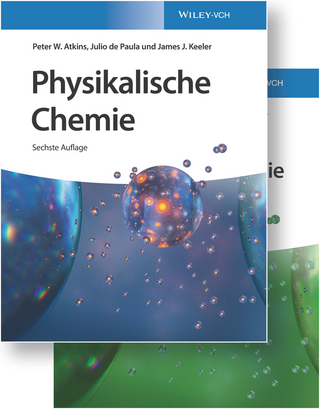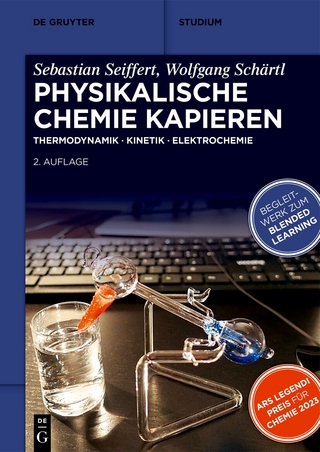Molecular Simulations
Wiley-VCH (Verlag)
978-3-527-34105-4 (ISBN)
Saman Alavi is Adjunct Professor at the Department of Chemical and Biological Engineering at the University of British Columbia (Vancouver, Canada) and at the Department of Chemistry and Biomolecular Sciences at the University of Ottawa (Canada). After obtaining his PhD from the University of British Columbia, he spent research periods in the National Research Council of Canada, at Oklahoma State University (USA) and the University of Ottawa (Canada). Saman Alavi has authored over 120 scientific publications on molecular simulations of different classes of materials.
1. INTRODUCTION
Motivation: Relating Microscopic Molecular Properties to Macroscopic / Thermodynamic Behavior of Bulk Systems
Molecular Dynamics and Monte Carlo Simulations for Modeling Macroscopic Scale Experiment
Scope of the Book and Background Needed
2. CLASSICAL MECHANICS FOR MANY-MOLECULE SYSTEMS
Newton's Equations of Motion for Many-Molecule Systems
Analytical Solution of Newton's Equations for Simple Systems
The Concept of Trajectory and Phase Space
Numerical Solution of Newton's Equations, Finite-Difference Method
The Verlet and Leapfrog Time Progression Algorithms
The Trajectory for a Many-Particle System
3. FORCE FIELD MODELS IN CLASSICAL MOLECULAR SIMULATIONS
Summary of the Quantum Mechanics of Molecular Force Fields
Modeling the Potential Energy Surface of Non-Reactive Systems
Inter- and Intra-Molecular Force Fields
Design and Choice of Force Fields
Calculation of the Force Field Parameters Using Quantum Chemistry, Spectroscopy, and Modeling
4. INTRODUCTION TO PROBABILITY CONCEPTS
Basic Concepts of Probability Theory: Single and Multiple Variable Probabilities, Discrete and Continuous Probabilities, the Central Limit Theorem
Maxwell-Boltzmann Probability Distribution for Molecular Velocity, Speed
Maxwell-Boltzmann Energy Distribution for Single Molecules and Collections of Molecules
Probability Distributions of Large Collections of Molecules
Assigning Molecular Velocities in Molecular Simulations from the Maxwell-Boltzmann Probability Distribution
5. INTRODUCTION TO STATISTICAL MECHANICS
Statistical Mechanics in Classical Mechanics Language
The Concept of Partition Function and Ensembles in Statistical Mechanics:
Canonical (Isothermal Isochoric), Isothermal Isobaric, Grand-Canonical and Other Ensembles
Thermodynamic Properties: Energy, Temperature, Pressure, Entropy, Free Energy, Fluctuations in These Quantities in Microscopic Systems
The Quantum Mechanical Approach to Statistical Mechanics
6. MOLECULAR DYNAMICS (MD) SIMULATIONS 1
Periodic Boundary Conditions: Simulating "Infinite" Bulk Systems with a Finite Number of Molecules
Simulating Bulk Phases, Surfaces, and Nanoparticles;
Short-Range Van Der Waals Forces: Truncation of Potentials
Long-Range Electrostatic Forces: Ewald Summations
7. MOLECULAR DYNAMICS (MD) SIMULATIONS 2
Including the Effect of the Environment in Molecular Simulations: Thermostats and Barostats
Determining Thermodynamic Averages from Molecular Dynamics Trajectories: Multiple Time Origins and Maximizing Sample Size and Statistical Averaging
8. ANALYZING MOLECULAR DYNAMICS SIMULATIONS
Characterizing the Microscopic Structure of Phases
Radial Distribution Functions, Order Parameters
Dynamics of Molecules from MD
Mean-Square Displacements, Velocity Autocorrelations, Diffusion Coefficients
9. MONTE CARLO (MC) SIMULATION METHODS AND APPLICATIONS
Principles of Monte Carlo Methods, Sampling from the Ensemble Probability Distribution
Importance Sampling, Microscopic Reversibility
Advantage and Disadvantages of Monte Carlos Simulations in Comparison to MD Simulations
Simulations in Different Ensembles with MC
10. ADVANCED MOLECULAR SIMULATION TECHNIQUES
Free Energy from Molecular Simulations
Replica Exchange and Improving Phase Space Sampling
Course-Graining of Potentials
11. OTHER BACKGROUND KNOWLEDGE REQUIRED FOR RUNNING MOLECULAR SIMULATIONS
Setting Up the Initial Geometry: Solids, Space Groups and Symmetry, Liquids and Gases
Selecting and Setting Up the Force Field for a Molecular Simulation
Simulations of Proteins, DNA, and RNA
Simulations of Biological Membranes
The PDB Format for Initial Geometry
| Erscheinungsdatum | 24.06.2020 |
|---|---|
| Verlagsort | Weinheim |
| Sprache | englisch |
| Maße | 170 x 244 mm |
| Gewicht | 666 g |
| Themenwelt | Naturwissenschaften ► Biologie |
| Naturwissenschaften ► Chemie ► Physikalische Chemie | |
| Technik ► Maschinenbau | |
| Schlagworte | Bioinformatics & Computational Biology • Bioinformatik • Bioinformatik u. Computersimulationen in der Biowi • Bioinformatik u. Computersimulationen in der Biowissenschaften • Biowissenschaften • Chemie • Chemistry • Computational Chemistry & Molecular Modeling • Computational Chemistry u. Molecular Modeling • Life Sciences • Materials Science • Materialwissenschaften • Materialwissenschaften / Theorie, Modellierung u. • Materialwissenschaften / Theorie, Modellierung u. Simulation • Theory, Modeling & Simulation |
| ISBN-10 | 3-527-34105-6 / 3527341056 |
| ISBN-13 | 978-3-527-34105-4 / 9783527341054 |
| Zustand | Neuware |
| Haben Sie eine Frage zum Produkt? |
aus dem Bereich
